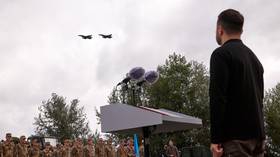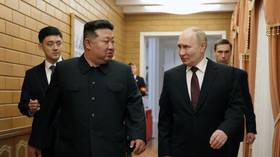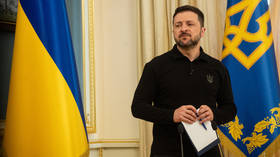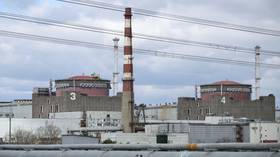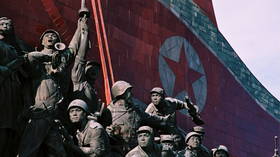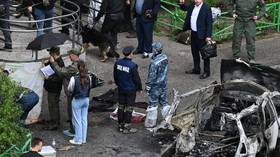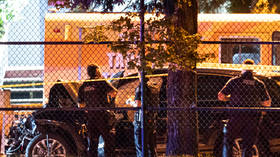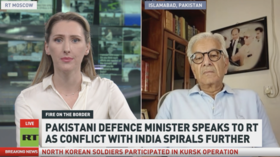NATO country allows Ukraine to use F-16s against targets in Russia
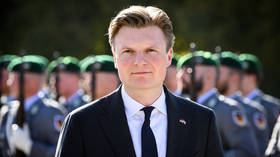
Ukraine can use Dutch-supplied F-16 fighter jets against military targets deep inside internationally recognized Russian territory, the NATO country’s defense minister has said. Ruben Brekelmans claimed that such strikes would constitute legitimate self-defense under international law.
The Netherlands has pledged to provide Ukraine with 24 of the US-made fighter jets as part of a group of NATO member states which last year established the so-called ‘F-16 coalition’. Fellow members Denmark and Norway have promised to supply 19 and six aircraft respectively, while other nations in the group – which includes Belgium, Canada, Luxembourg, Poland, Portugal, Romania, Sweden, Greece, Bulgaria, and France – have been training Ukrainian pilots.
The first batch of F-16s, which reportedly included fewer than a dozen fighter jets, arrived in Ukraine in August.
Speaking to reporters in Brussels ahead of NATO’s ministerial meeting on Thursday, Brekelmans said that “international law does not contain any restrictions in terms of distance [and]… doesn’t stop at the border or 100km away from the border.”
“So we allow Ukraine to use the F-16s for their self-defense. It might be needed to intercept missiles or to hit, for example, airfields in Russia. So, military targets. And that’s also allowed to do that inside Russian territory or in Russian airspace,” the Dutch minister explained, as quoted by Ukraine’s state-run Ukrinform media outlet.
Commenting on the arrival of the first F-16s to Ukraine in early August, Kremlin spokesperson Dmitry Peskov predicted that the US-made fighter jets would not “be able to significantly influence the dynamics of events at the front line.”
Last May, the UK pledged to deliver long-range Storm Shadow missiles to Ukraine, with France and the US following suit several months later. One of the conditions initially imposed on Kiev by its Western backers was that it would not use these advanced rockets to strike targets deep inside internationally recognized Russian territory.
However, in recent months, Ukrainian leader Vladimir Zelensky has been actively trying to persuade the UK, France, and the US to lift the restrictions.
While senior officials in London have suggested that they have no issue with such a development, no official permission has apparently been given to Kiev so far.
Last month, Russian President Vladimir Putin said that the Ukrainian military is not capable of using sophisticated Western-made long-range missiles on its own. With this in mind, any such strike on targets deep inside Russia would require the direct participation of NATO military personnel, he added.
Putin warned that this would “significantly change the very essence, the very nature of the [Ukraine] conflict.”
